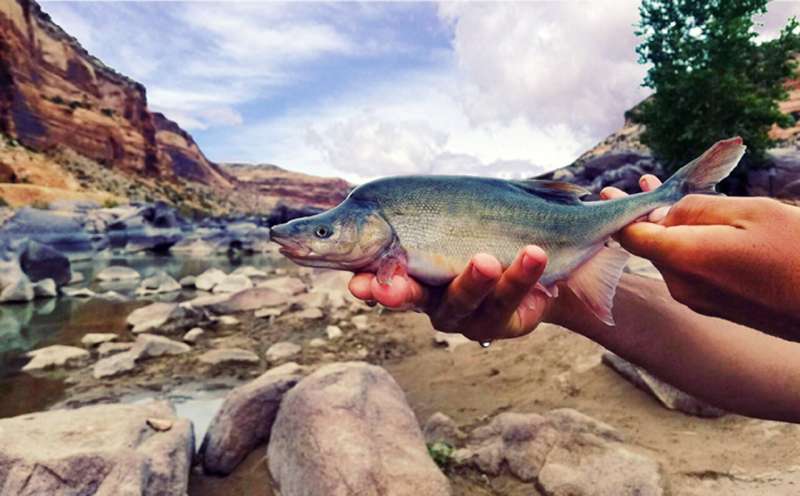US formally removes Colorado River fish's endangered status

The humpback chub, a rare fish found only in the Colorado River basin, has been brought back from the brink of extinction after decades of protection, though work must continue to ensure its survival, federal authorities said Monday in reclassifying the species from endangered to threatened status.
The fish, which gets its name from a fleshy bump behind its head, was first listed as endangered in 1967, its habitat severely disrupted by dam construction. Its numbers also declined with the introduction of predatory, non-native aquatic species.
Its change in status formally takes effect Nov. 17 under a rule published Monday in the Federal Register by the U.S. Fish and Wildlife Service.
Environmentalists oppose the endangered status delisting. They argue the humpback chub's future remains in peril as a megadrought, largely attributable to climate change, diminishes flows in the Colorado River basin, which includes seven Southwestern U.S. states and Mexico.
The delisting comes two months after the U.S. Bureau of Reclamation declared an unprecedented water shortage on the river. It also follows a July Fish and Wildlife proposal to move another rare Colorado River fish, the razorback sucker, from endangered status to threatened.
Jen Pelz, Wild Rivers Program director at the environmental group WildEarth Guardians, said in a statement that it was "perplexing that the (U.S. Interior Department) would be going to so much trouble to reclassify these endangered fish at a time when so much uncertainty exists regarding climate change and the ability to continue to fund the suite of heroic measures it undertakes annually for these species to survive."
Both the Fish and Wildlife Service and the Bureau of Reclamation are part of the Interior Department.
The government considers a species "endangered" if it is in danger of extinction in all or much of its historical habitat. Protections are kept for "threatened" species, and that status means biologists can take steps to improve the overall population even if some of the fish might be hurt.
Fish and Wildlife said it finalized another rule to ensure that work with other parties—including private, state, tribal and federal agencies—continues to maintain its existing habitat and diminish the threat from predators and drought-induced water flows, among other preservation efforts.
The largest population of the humpback chub is in the Grand Canyon, with more than 12,000 adult fish. Four smaller wild populations are upstream of Lake Powell in Utah and in Colorado canyons. The species thrives in rocky waterways with swift currents but needs warm and muddy water to spawn.
The fish once had a broader range, but the construction of the Flaming Gorge Dam in Wyoming and Hoover Dam on the Nevada-Arizona border led to two other populations of the species becoming extinct. An eighth population in Dinosaur National Monument also is considered gone.
© 2021 The Associated Press. All rights reserved. This material may not be published, broadcast, rewritten or redistributed without permission.


















